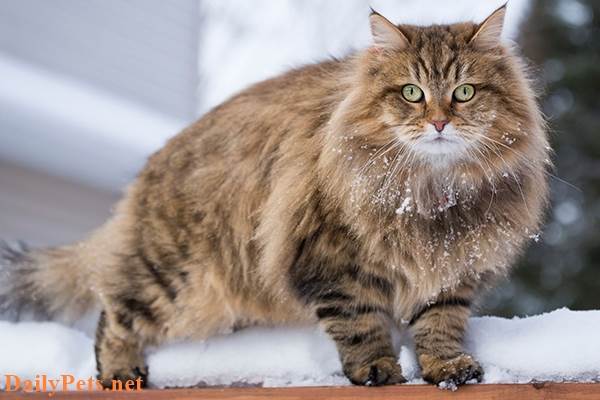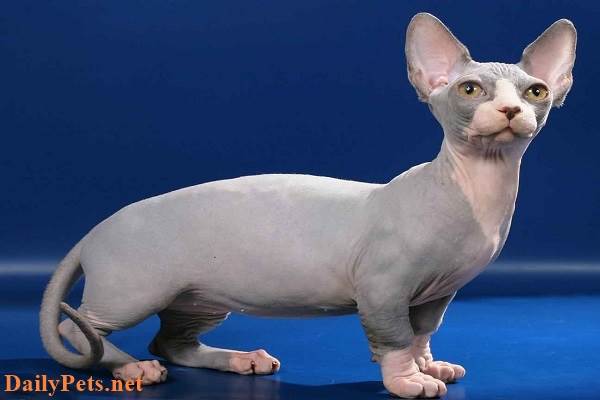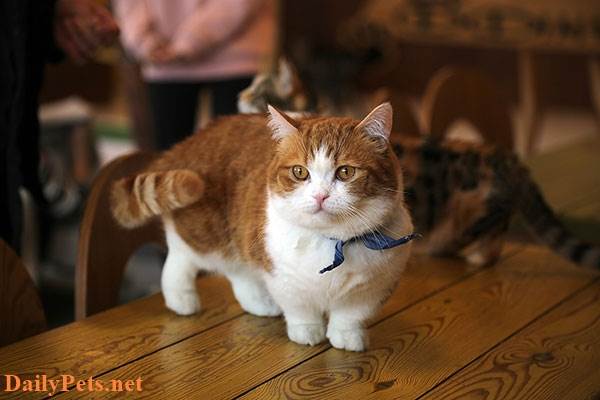The Abyssinian cat is one of the oldest cat breeds. They have a long lifespan. This cat breed reminds us of the ancient Egyptian cat on ancient reliefs.
Let’s find out detailed information about Abyssinian cats with DailyPets.net through this article.
Abyssinian cat origin
Today, there is no research to pinpoint the exact origin of the Abyssinian cat breed. Some assumptions are:
The Abyssinian cat is origin to the coasts of the Indian Ocean and Southeast Asia
Today’s Abyssinian cat is named after the original name of the country Ethiopia. Some people think that their ancestors originated in Abyssinia and were named after the country. However, other opinions suggest that they are native to the coasts of the Indian Ocean and Southeast Asia.
Genetic studies show that the genes of the Abyssinian cat are closely related to those of the nearby cats. The Abyssinian legend is the best known, claiming to be descended from the sacred cat.
About 4000 – 6000 years ago, these cats were worshiped as gods in the palaces and temples of the ancient Egyptians. The Abyssinian cat looks like a cat sculpted on reliefs and walls in Egypt.
The Abyssinian cat originated in England
At the end of the Abyssinian War in 1868, a cat named Zula was transported from Abyssinia to England. Zula is depicted as a cat with small ears and a head that does not resemble the typical Abyssinian. This causes a lot of debate about the true origin of this cat breed.
Because there is no evidence that Zula is connected with the present-day Abyssinian, some believe the original breed is dead, and the Abyssinian was bred from the current English cat.
However, recent studies show that the Abyssinian cat did not come from ancient Ethiopia or Europe. This breed of cat menu comes from Southeast Asia and India.
Physical characteristics of Abyssinian cats
The Abyssinian cat has a long, lithe body and tends to show muscular strength. The head is slightly rounded or wedge-shaped with many small tufts; the head is slightly protruding from the bridge of the nose to the forehead. Abyssinian’s muzzle is square, not pointed, and the chin is not concave.

Abyssinian cat.
The Abyssinian cat’s ears are quite large; the ears are wide, cupped, and forward as if listening. The fur on the short ears looks very cute. Besides, the Abyssinian is attracted by the large bright eyes, the expression as if to say something. The highlight of the eye is the dark line, surrounded by light color. The Abyssinian cat’s eyes are green or yellow.
The legs and body of the Abyssinian cat look slim and well-proportioned, with a quick gait. When climbing, they move as quickly as real athletes. Each adult cat weighs from 4.5 to 5.8 kg.
The Abyssinian cat has an average lifespan of 9-15 years, possibly even longer. The cat’s age increases depending on the care regime, living environment, and nutrition. To ensure the pet has less disease and a long life, owners must learn how to properly care for this cat breed.
Abyssinian cat personality traits
Abyssinian cats are prized for their loyal, intelligent personalities and love to run and jump. Compared to common pet cats, the Abyssinian is inherently curious and loves to explore.
Abyssinian cats usually spend most of their time exploring every corner of the house. At the same time, sit on high and observe and watch what happens outside. In particular, this cat breed also loves to spend time with its owner.
Another striking feature is that the Abyssinian loves high altitudes. At any time, your pet cat can jump on the shoulder, cabinet, the surrounding trees, etc. Instead of climbing on the lap, they suddenly jump on the back to show affection to the owner.
How to take care of an Abyssinian cat
When buying an Abyssinian cat as a house pet, you must learn how to care for it properly. For your pet cat to grow up healthy, pay attention to the following issues:
Habitat for Abyssinian Cats
The Abyssinian cat is inherently naughty and likes to play with everything around. Therefore, your house risks becoming a battlefield if not arranged discreetly. Pet cats can pick up furniture and climb anywhere in the house.
The Abyssinian cat breed can adapt well to all environmental conditions. The most important thing is the care and love of the owner. If there are many feral cats around your house, you should pay attention to keeping cats in the house. Because the playful cat can get sick, lost, or have an accident when roaming outside.
You should avoid keeping Abyssinian cats indoors too often. You should take your pet for a walk and roll in a large yard to relax every week. Surely, your cat will feel more excited and playful.
Abyssinian cat food
Each Abyssinian cat has a unique taste and preference for food. Depending on the conditions and living environment, the owner chooses the right food for the pet. However, cats are inherently carnivorous creatures, so you need to add this group to the menu.
When buying an Abyssinian kitten, you must give the pet nutritious milk. Combine soft, dilute, and easily digestible foods such as Porridge, vegetable soup, minced meat soup, etc. Feed your cat with a reasonable portion to avoid bloating and indigestion.
Adult Abyssinian cats are easier to care for. You can feed dry seeds specifically for pets and fresh food groups. Each meal should give the Abyssinian a full meal: Meat, seafood, pate, animal organs, vegetables, …
In addition, food for Abyssinian short-haired cats needs to be carefully selected. Clean and well cooked, with a tray of clean water. You should clean your pet’s food tray every time they finish eating. To make sure the cat does not have digestive diseases.
Care and hygiene for Abyssinian cats
The Abyssinian cat’s coat is usually short, not too thick, and ruffled, so it is easy to care for. You don’t have to spend too much time brushing your pet’s coat daily. You must bathe your pet weekly when the cat’s fur is dirty or has a skin disease.
Using a specialized shower gel, you should bathe your Abyssinian cat in warm water. After rinsing with water, you need to wipe and dry. Avoid getting wet hair that can make pets sick.
While bathing an Abyssinian short-haired cat, you should carefully examine the nose, eyes, and ears. Use a soft cloth or cotton ball soaked in water to wipe away dust and dirt from the eye sockets and ears. Pay attention to thorough cat hygiene, and avoid letting pets come into contact with mud, dirty ponds, lakes, etc.
Some common health problems in Abyssinian short-haired cats
Abyssinian cats can suffer from some genetic diseases like cats from Europe. When taking care of Abyssinian cats in the family, you need to pay attention to the following common diseases:
Dental disease
Abyssinian short-haired cats need regular cleaning and dental check-ups. Because they can suffer from tooth loss, leading to other diseases such as Infections of the liver, heart, and kidneys. Because bacteria from the mouth affect other organs.
Usually, Abyssinian cats drink very little water; to prevent dental disease, you should give them diluted food. Alternate with dry food and water regularly every day.
In addition, owners need to limit letting cats eat foods that have a strong smell or are easily stuck in their teeth. If you are more careful, you should use a toothbrush to clean your cat’s teeth after they finish eating.
Hyperthyroidism
This is a fairly common disease in Abyssinian cats. An overactive thyroid affects metabolism. This causes the cat’s body to burn energy quickly, making it difficult to gain weight.
However, this disease can be effectively treated with a balanced medication directed by your veterinarian.
Chronic kidney disease
The genetic disease is common in old, weak Abyssinian short-haired cats. Potential for chronic renal failure to affect later development. Therefore, when buying this cat breed, you need to check your pet for genetic disease screening.
Dislocated patella
Due to the nature of running, jumping, and climbing high, the Abyssinian shorthair cat often dislocates the kneecap. Although the disease is not dangerous, it makes it difficult to exercise.
This condition can be corrected with surgery straightening the joints. Depending on the severity of the dislocation, the veterinarian will promptly treat it, ensuring the pet’s safety.
Pyruvate Kinase Deficiency
This disease causes Abyssinian cats to have problems with red blood cells not being metabolized. Over time, cats will have blood disorders or anemia. This is a genetic disease, congenital, so only a bone marrow transplant can be cured.
When caring for Abyssinian short-haired cats, Pyruvate Kinase deficiency is always a concern for many people because they are extremely dangerous and can cause death if not detected and treated early.
Progressive retinal atrophy
In addition to the above diseases, Abyssinian cats also have progressive retinal atrophy. If not treated early, cats can become permanently blind. Therefore, owners should have their cats have their eyesight checked regularly. Combine vitamin-rich foods to enhance vision to prevent early disease.
Ideally, when buying pet cats at pet stores, you should choose healthy ones. The Abyssinian Shorthair cat has clear origins and certifications. Do not buy cats that are too cheap, often faulty ones, at risk of disease, and difficult to care for.
Abyssinian cats are generally quite easy to care for but not as difficult as British cats. So, your family can buy an Abyssinian cat to care for in the house and let them play with young children.
Price of Abyssinian short-haired cat on the market
Depending on the genealogical origin, sex, and coat color, the price of an Abyssinian short-haired cat varies from place to place. Of course, purebred offspring in good health will cost more than the rest. To buy a quality Abyssinian, you should consult a trusted pet shop.
According to reference information from websites online, purebred Abyssinian short-haired cats imported from the Americas – Europe the cost ranges from $4,000 – $5,000, excluding shipping and other fees.
For bred Abyssinian cats, kittens are from 2 to 3 months old, priced from $1000 to $1500/cat.
You should also research when buying through personal breeders or reselling family Abyssinian cats. Before paying, you should visit the place to observe the cat’s appearance, condition, and health.





